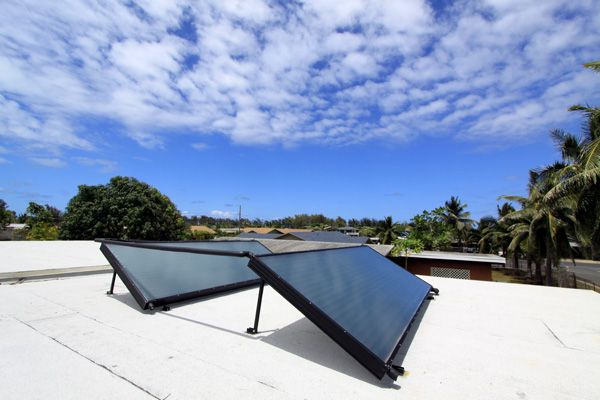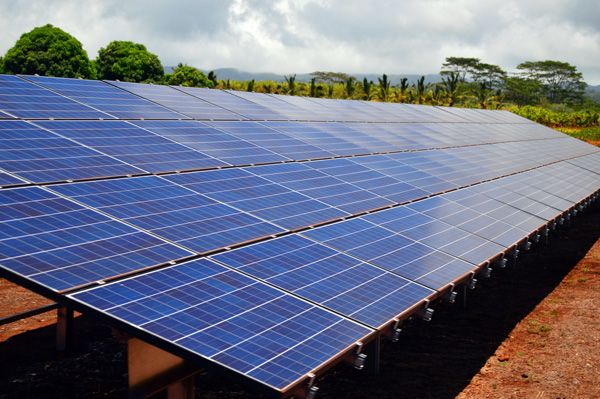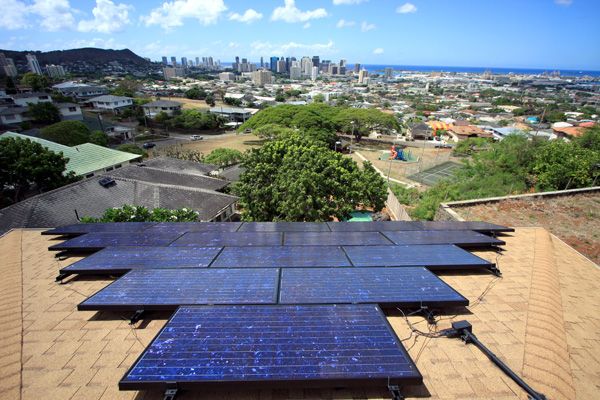Do Solar Panels Cause Roof Leaks?
Solar panels are an increasingly popular choice among homeowners who want to lower their energy costs and reduce their environmental impact. With the cost of photovoltaic systems falling dramatically in recent years, more and more people are turning to solar power as an alternative. However, with any home improvement project comes potential risks – one of which is roof leaks caused by solar panels.
Solar panels can cause roof leaks if they are not installed properly
Although it is possible for solar panels to cause roof leaks, this is far from a universal truth. In fact, if they are installed correctly and maintained properly, solar panels should not cause any issues with leaking roofs. The key lies in choosing a reputable installer who knows how to do a proper job when fitting the panels. There’s no room for mistakes when it comes to ensuring a safe, functional installation that does not damage your roof or interior walls.
Holes must be cut in the roof to run electrical wiring from the panels to the inverter
When installing solar panels, holes must be cut in the roof in order to run electrical wiring from the panels to the inverter. This wiring is typically laid flat against the roof and secured with clips so that it won’t move or vibrate due to wind or other forces. The installation of this wiring is a very important step in ensuring that your solar panel system is properly connected, as any loose wires can cause issues with energy transfer and may even lead to fire hazards. It is also important to make sure that these holes are sealed up after drilling, as any open gaps could cause water leakage over time. Taking all of these measures when installing solar panels will help ensure that you maximize the benefits of renewable energy while avoiding potential problems like roof leaks.
So what can go wrong during the installation process? The most common cause of roof leaks associated with solar panel installations is improper sealing around the holes that need to be cut into the roof in order for the electrical wiring from the panels to reach the inverter. If these holes are not sealed properly, then water could get through and cause water damage inside your home.
If the panels are not installed in a way that allows water to drain properly, it can also lead to leaks
When installing solar panels, it is essential to ensure that the system is secure and allows for proper drainage of water from the roof. If the panels are not installed in a way that allows for the water to run off safely, this could lead to potential leaks in your roof. Furthermore, if your roof’s slope isn’t sufficient enough to provide adequate drainage, extra measures such as running hoses from the roof may need to be taken into consideration. Additionally, before installing any materials on your roof it is important to make sure that any existing damage is repaired, as this could create potential entry points for moisture and further damage the integrity of the roof over time. Taking all of these steps during installation will help ensure that you receive the most benefit out of your solar panel system while avoiding potentially costly repairs down the line.
Another potential issue that can lead to roof leaks is if the solar panels themselves are not positioned on your roof in such a way that allows water to drain away without causing problems. This means ensuring there’s adequate space between each panel and enough slope so that rainwater can run off effectively without pooling up or getting stuck behind them.
Finally, it’s important to make sure you use the right type of mounting hardware when installing your solar panels; depending on where you live this could mean using stainless steel or aluminum fasteners instead of regular nails or screws which could corrode over time due to weather exposure and potentially cause damage down the line.
The majority of roof leaks occur due to improper installation when installing solar panels on a rooftop. During the installation process, holes must be cut in the roofing material in order to run electrical wiring from the solar panel array to the inverter. If these holes aren’t sealed properly with a sealant designed for use on roofs, water can easily enter through that hole and create an indoor pool in your attic or other areas beneath your rooftop. This can lead to costly damage.
In addition to improper installation leading to roof leaks, another common reason for leaks is related to installation techniques which don’t allow for proper water drainage around the edges of the solar panels. For example, if tar was used instead of sealants and flashings during installation then there is nowhere for water that collects on top of the panels to flow off of them. This can lead to pools forming and eventually dripping into areas below that are unprotected by waterproofing materials such as tar or sealant.
To avoid any potential problems with leaking roofs due to poorly installed solar panel systems, it is important that you choose a reputable company who has experience in this field and will take all necessary steps during installation and maintenance in order to ensure that your system is properly installed and maintained. An experienced installer will also know how best to route wiring from the array so as not cause excess stress on your roof since additional weight from wiring could potentially lead to future problems as well.
It’s crucial that you always have regular check-ups done by a professional technician on your system either annually or bi-annually depending on local regulations and weather conditions in order make sure that everything is running efficiently and securely before any possible issues arise with leaking roofs due to faulty installations or lack of maintenance.
Not only are regular inspections important but cleaning both sides of your array regularly is essential as well since accumulated dirt over time can also negatively affect performance efficiency time over time leading again needing costly repairs or replacements further down the line if not taken care of early enough before any major damage occurs due too long-term neglect or buildup of dirt blocking sunlight reaching those particular cells on your array causing lower wattage output than what should be expected given their specific conditions at the moment..
Overall then, it’s clear that if you choose a reputable installer like Haleakala Solar & Roofing who knows what they are doing and uses high-quality components during installation then there should be no risk of your solar panel system causing any issues with leaking roofs whatsoever – meaning you can enjoy all the benefits of renewable energy without worrying about any negative impacts!
One way to ensure you get good service when having your solar panel system installed is by checking out reviews from other customers before committing yourself – this will give you an idea of what kind of quality workmanship and customer service they offer before deciding whether they are right for you or not! Additionally, it may also be worth considering getting some professional advice beforehand too; many regions have dedicated bodies offering free guidance on renewable energy technologies like photovoltaic systems which can help put your mind at ease as well as provide useful tips on how best to install them safely so you don’t need worry about leaks later down the line!
It’s also important to remember that even if everything goes according to plan during installation there is still likely going to be some degree of maintenance required over time – something else which should definitely be taken into consideration if you’re looking at investing in a PV system for yourself! Regular cleaning (especially after storms) will help ensure efficient operation and prevent dirt from clogging up any parts which could lead water ingress – thereby minimising chances further down the line of any unwanted moisture related issues cropping up!
All things considered then, while there is always going to be some risk associated with installing any kind of new technology on your home (or anywhere else), making sure you choose an experienced installer who uses quality materials should minimise these risks significantly so long as basic maintenance guidelines are followed afterwards too – leaving you free to enjoy all advantages that come with generating clean energy through photovoltaics without having concerns looming over potential leaky roofs!












